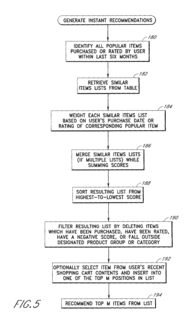 W
WDiscrimination is the act of making unjustified distinctions between human beings based on the groups, classes, or other categories to which they are perceived to belong. People may be discriminated on the basis of race, gender, age, religion, or sexual orientation, as well as other categories. Discrimination especially occurs when individuals or groups are unfairly treated in a way which is worse than other people are treated, on the basis of their actual or perceived membership in certain groups or social categories. It involves restricting members of one group from opportunities or privileges that are available to members of another group.
 W
WAlgorithmic bias describes systematic and repeatable errors in a computer system that create unfair outcomes, such as privileging one arbitrary group of users over others. Bias can emerge due to many factors, including but not limited to the design of the algorithm or the unintended or unanticipated use or decisions relating to the way data is coded, collected, selected or used to train the algorithm. Algorithmic bias is found across platforms, including but not limited to search engine results and social media platforms, and can have impacts ranging from inadvertent privacy violations to reinforcing social biases of race, gender, sexuality, and ethnicity. The study of algorithmic bias is most concerned with algorithms that reflect "systematic and unfair" discrimination. This bias has only recently been addressed in legal frameworks, such as the 2018 European Union's General Data Protection Regulation. More comprehensive regulation is needed as emerging technologies become increasingly advanced and opaque.
 W
WEquality of outcome, equality of condition, or equality of results is a political concept which is central to some political ideologies and is used in some political discourse, often in contrast to the term equality of opportunity. It describes a state in which all people have approximately the same material wealth and income, or in which the general economic conditions of everyone's lives are alike.
 W
WThe fat acceptance movement is a social movement seeking to change anti-fat bias in social attitudes by raising awareness among the general public about the obstacles faced by fat people, experiencing the stigma of obesity. Areas of contention include the aesthetic, legal, and medical approaches to people whose bodies are fatter than the social norm.
 W
WFat feminism, often associated with "body-positivity", is a social movement that incorporates feminist themes of equality, social justice, and cultural analysis based on the weight of a woman or a non-binary feminine person. This branch of feminism intersects misogyny and sexism with anti-fat bias. Fat feminists advocate body-positive acceptance for all bodies, regardless of their weight, as well as eliminating biases experienced directly or indirectly by fat people. Fat feminists originated during third-wave feminism and is aligned with the fat acceptance movement. A significant portion of body positivity in the third-wave focused on embracing and reclaiming femininity, such as wearing makeup and high heels, even though the second-wave fought against these things. Contemporary western fat feminism works to dismantle oppressive power structures which disproportionately affect fat, queer, non-white, disabled, and other non-hegemonic bodies. It covers a wide range of topics such as diet culture, fat-phobia, representation in media, ableism, and employment discrimination.
 W
WThe Mosquito or Mosquito alarm is a machine used to deter loitering by emitting sound at high frequency. In some versions, it is intentionally tuned to be heard primarily by younger people. The devices have attracted controversy on the basis of human rights and discrimination concerns.
 W
WIn law, sex characteristics refers to an attribute defined for the purposes of protecting individuals from discrimination due to their sexual features. The attribute of sex characteristics was first defined in national law in Malta, in 2015. The legal term has since been adopted by United Nations, European, and Asia-Pacific institutions, and in a 2017 update to the Yogyakarta Principles on the application of international human rights law in relation to sexual orientation, gender identity, gender expression and sex characteristics.
 W
WDue to the ongoing COVID-19 pandemic, people can sometimes be labelled, stereotyped, discriminated against, treated separately, or experience loss of status because of real or perceived links with the disease. As a result of such treatment, those who have or are perceived to have the disease, as well as their caregivers, family, friends, and communities, may be subjected to social stigma.
 W
WVoter suppression is a strategy used to influence the outcome of an election by discouraging or preventing specific groups of people from voting. It is distinguished from political campaigning in that campaigning attempts to change likely voting behavior by changing the opinions of potential voters through persuasion and organization, activating otherwise inactive voters, or registering new supporters. Voter suppression, instead, attempts to reduce the number of voters who might vote against a candidate or proposition.